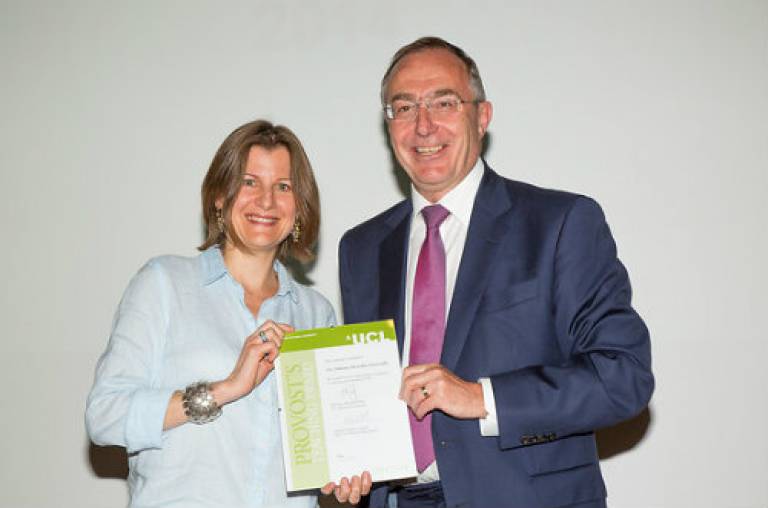Q&A with Dr Jolene Skordis-Worrall
21 July 2016

Dr Jolene Skordis-Worrall (Senior Lecturer, UCL Institute for Global Health) talks about the development of a new interdisciplinary postgraduate programme, which begins next year.
What are you working on at the moment?
We are putting together the final touches to our new postgraduate programme, which begins in September 2017. The MSc in Health Economics and Decision Science brings together academics from economics, statistics, maths and global health for a multi-faculty approach that will enable us to give students a unique foundation in this field. The interdisciplinary nature will appeal to students looking to develop academic rigour, while expanding their professional employment options. We want to ensure our students are highly employable in the academic and private sectors.
We are also involved in an ESRC Doctoral Training Partnership application for the development of a new doctoral training centre, along with several other London universities. This will be useful for students who wish to study for a PhD after the programme.
What advice would you give to someone looking to develop the way they teach?
As traditional didactic teaching becomes out-dated, teachers are increasingly taking on the role of mentor or guide. Teaching at the university level is no longer about simply imparting information, but about navigating students through complex and fast evolving evidence and helping them to reach their own conclusions.
As the nature of teaching changes, so too does our opportunity to embrace research-led teaching. As researchers we are at the forefront of evidence creation, we know where the gaps are and we know the direction of travel in our own art or science. This gives us a unique insight as guides to student learning. I often draw on examples from my own research to embed abstract theories into a complex reality or to problematize theory. This is the equivalent of object-based learning in my own field and students respond extremely well to this dose of ‘concepts in real life’.
How do you expect higher education to change in the next five years?
As classroom-based learning moves away from more didactic methods, I think we will see flexible approaches such as blended learning, flipped classroom and student led-learning becoming more common. These lend themselves to the role of university teacher as mentor and guide.
I believe that what it means to be a student will also change. We are already seeing students become more active participants in shaping their own learning. As smart technologies shape communication and human interaction, so students will increasingly expect their learning to be personalised. With rising student numbers and the constrained financial climate – meeting high student expectations will challenge even the best of universities.
What piece of technology do you find invaluable in your teaching?
A popular session I run uses Skype. After a week of theory, we end with an expert panel discussion where we contact Research Associates based in our field sites around the world. It’s simple to arrange in advance, and technical difficulties aside, it brings the global research undertaken at UCL in to the classroom.
We also video capture all our teaching and make it available online immediately. Students no longer sit frantically taking notes, but can get engaged in class discussions knowing that the content is available for them to review after the session. These videos become revision tools too as students now have time to digest information in a way that they didn’t before.
What achievement are you most proud of?
The collective effort that has enabled the new MSc in Health Economics and Decision Science to be a truly multi-faculty offering. The experience of setting it up has been very positive and shows how well colleagues at UCL can collaborate to deliver unique teaching programmes. I am looking forward to welcoming the new cohort in 2017 and to opening up the discipline to a new generation of students.
Domi Sinclair asks: “Does UCL need to increase the speed with which it innovates teaching and learning practice across the university?”
UCL innovates quickly for such a large university, particularly given the diversity of disciplines, faculties and teaching styles. As a long established research-intensive university, I feel we being very open to teaching support and innovation. That said, there could be more support for technological innovation such as the use of learning apps and more flexible alternatives to Lecturecast.
What question would you like to pose to the next interviewee?
How do we ensure research and teaching are not set up to be in competition with one another? Does the Connected Curriculum, which tries to address this, go far enough?
 Close
Close

